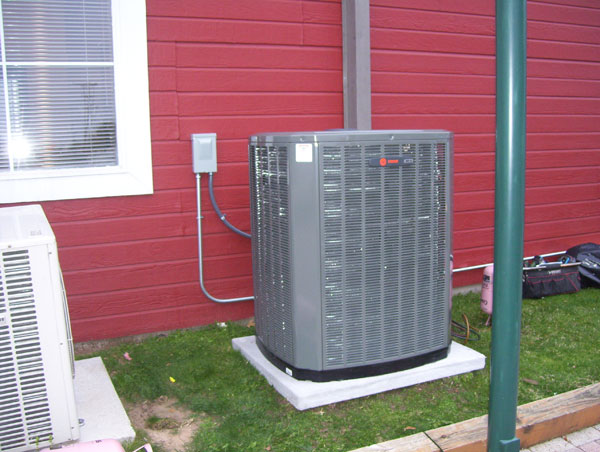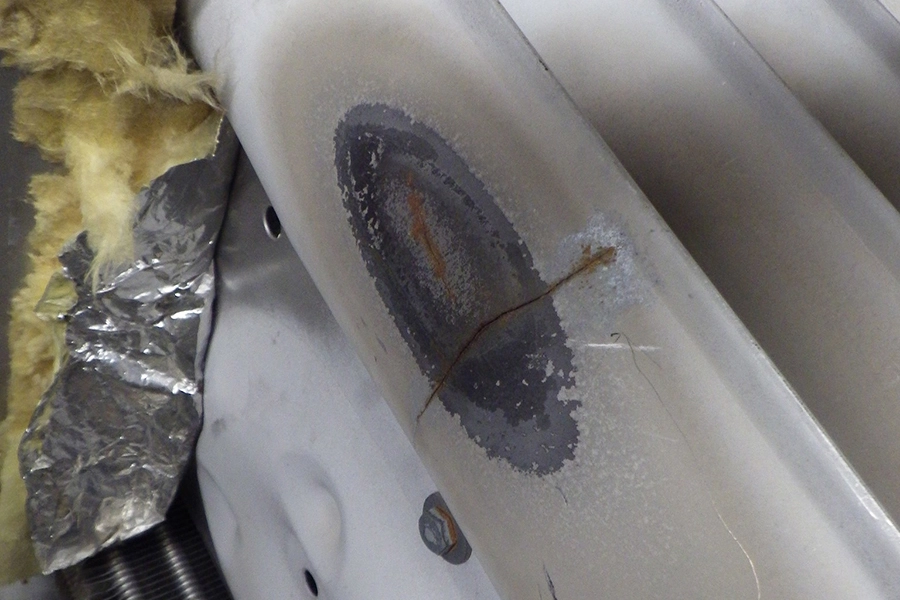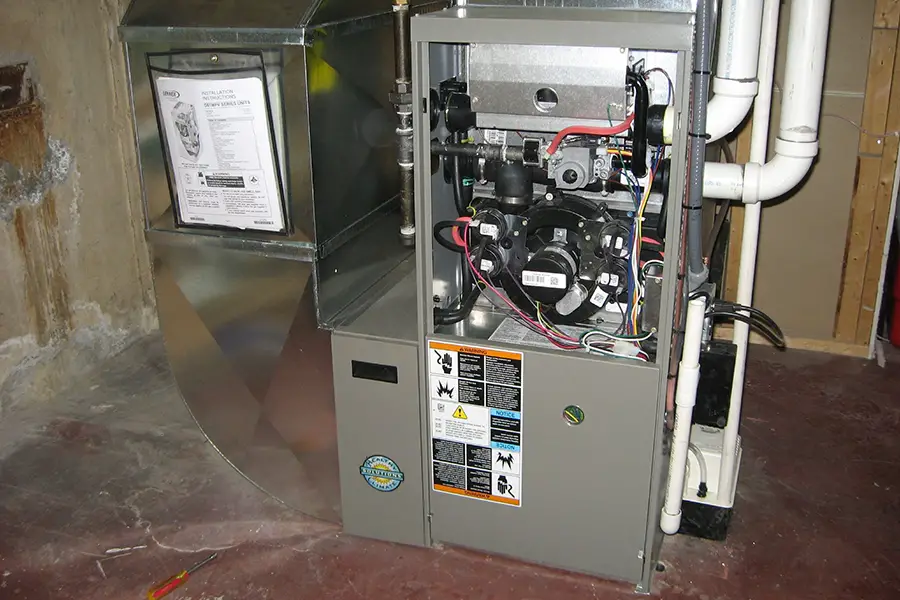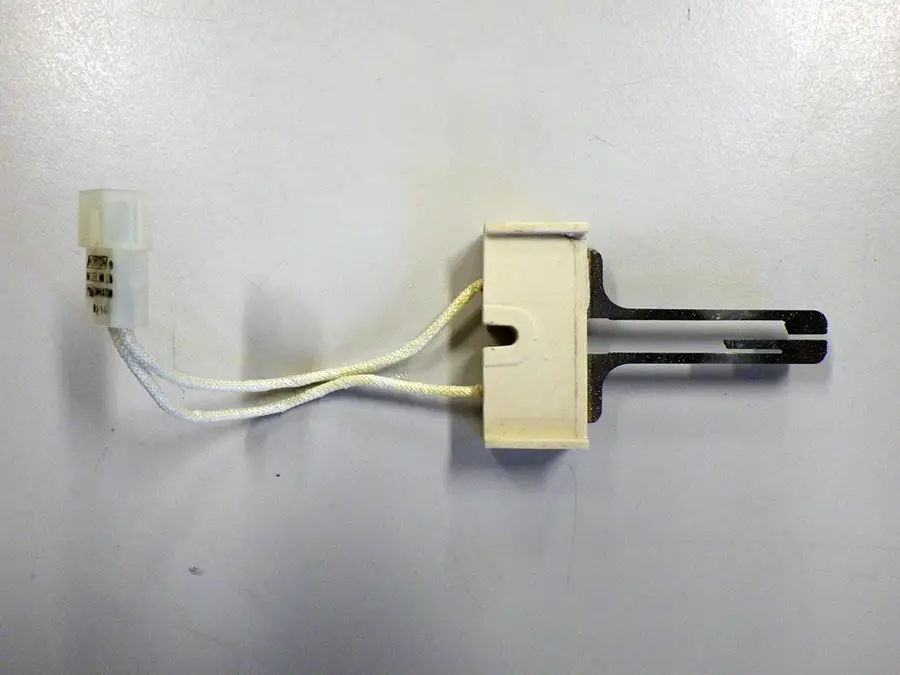Image source
We’ve come to depend on our air conditioning systems. So when we hear unusual noises, we of course what to know if we need to be concerned and what the noise might be. Knowing the cause of a noise can help you determine if your AC unit needs to be fixed, or if it’s just the typical sounds associated with operations.
It’s not uncommon for an AC unit to make many different noises, but just because you haven’t heard it before, doesn’t necessarily mean that it’s a cause for concern. This article will explain some common sounds that your AC unit could be making and what those noises might mean.
Banging noises
Banging noises are a bad sign for any air conditioner. Most commonly, this will be caused by the compressor. The compressor is the black cylinder located in the center and bottom of your air conditioner. It’s in charge of “compressing” your refrigerant and then pumping it through the system.
A banging sound coming from the compressor will likely mean that something has come lose inside of it. Compressors are built as a sealed unit and cannot be taken apart without cutting the case in half. This means that your options will be to replace the compressor or the entire AC unit. You will want to call an HVAC service professional to inspect the unit in case of banging noises.
Screeching and squealing sounds
Screeching sounds are often horrible; somewhere between nails on a chalkboard and ripping metal. These sounds mean that you have a bad fan motor, or if your indoor unit is quite old, it could be the belt connected to your blower wheel. When the belt starts to get old and dry, it can cause a squealing sound.
If you have a bad fan motor, the screeching/squealing sound is caused when the bearings in your fan begin to go and metal starts to rub on metal. Sometimes, a motor will screech as it gets up to speed and then stops making the sounds once it moves. If this happens, you will want to consider oiling your fan motor.
Many condenser fan motors have an oiling hole in the side of the motor. You will want to squirt some turbine oil in the hole to help lubricate the bearings. Newer units have sealed motors that do not require oiling, but older units recommend annual oiling.
If you have oiled your fan and it’s still screeching or turning slower than usual, you should call a professional. There are electrical components that the condenser fan is connected to that could be extremely dangerous if you do not have experience on how to handle them.
Buzzing sound
If you hear a low continuous buzzing sound, like the sound an old streetlight would make, this is a perfectly normal noise. It’s usually pretty quiet and something you will have to listen to. The sound is caused by the coil inside of your contactor buzzing. The contactor is essentially the switch that turns on your compressor and fan.
If it is a loud buzzing sound, what I would call chattering, it could be the points on your contactor not making a good connection. This will cause the contactor to open and close extremely quickly, trying to make contact and cause that chattering sound.
A contactor is something that a handy homeowner could replace themselves. You would need to make sure that you put all the wires back where they go because there will be wires on the sides that are low voltage and power the contactor’s coil. Then there are the power wires. Each side of the contactor is a different leg of power from the breaker box, so if you cross the wires by putting them on the opposite side, you can cause issues.
Rattling sounds
Most commonly, this will be because of a loose or stripped screw somewhere on the unit. A screw will come loose or become stripped out from over-tightening and cause a unit’s body panel to start rattling. If you walk up to the unit and put your hands on it, you may be able to feel the panel that is rattling, and once you put your hand on it, then it will stop making noise. Then you will know where you should focus your efforts.
Sometimes though, it’s something worse. It could be a fan blade issue. Fan blade issues could be anywhere from a fan blade becoming unbalanced and causing the unit to shake, to the fan coming apart and damaging your unit from the inside. A quick visual inspection and feeling where the unit is trembling will let you know if you need to call a professional or not, which is recommended in the case of a fan issue.
Clicking noise
It’s normal for your air conditioner to make one click at the beginning and end of its cycle. This will be the contactor receiving the signal from the thermostat telling it to turn the unit on. The click you hear will be the contactor closing at the beginning of the cycle and opening at the end of the process.
Whooshing sound
It’s common to hear a whooshing sound on occasion. When the compressor shuts off, the pressure equalizes inside of the air conditioner and copper lines. If you have a heat pump air conditioner, you will hear this more often in the spring and fall as the unit switches back and forth between cool and heat.
Bubbling or gurgling sounds
If you hear any bubbling or gurgling sounds from your indoor unit, it may have a clogged drain. This is an easy fix that a handy homeowner can do themselves. Most of the time, the drain will be running with PVC to the exterior of your home. You can cut the PVC close to the unit while assuring that there is still enough room on each side to reattach it with a coupling. It is best to cut it on the unit side of the P-Trap if it has one. If it does not, you may need to install one.
Once you cut the pipe, the clogged water will come out so you will want a bowl or towel to catch it. If there is no water coming out, you will want to open the panel on the unit and make sure the drain is not plugged. You will take the pipe going outside and blow through it. Your lungs should have enough pressure to blow it out, but you can use an air compressor if you would rather. The drain’s insufficient trap causes the bubbling sound, and the air pressure pulls the water back. Or there is something in the line which is not letting it drain to the point that the water is getting sucked back into the coil.
If the gurgling sound is coming from your outdoor unit, it may be related to the refrigerant lines and could be an indication of a leak in the lines or improper refrigerant pressure. In this case, you should reach out to a professional.
Window Air Conditioners
If you hear any of these sounds coming from a window air conditioner, you can expect the same causes. Window air conditioners have the same components as a full-sized system and therefore can have the same sounds.
Final thoughts
Many of the sounds that an air conditioner makes are caused by the main components that are not easily serviced by a homeowner or are hazardous if you are inexperienced. If you ever feel out of your comfort zone or do not know what you are doing, it would be best to call a professional.
Have you experienced any odd sounds coming from your AC unit? Tell us what happened below.




